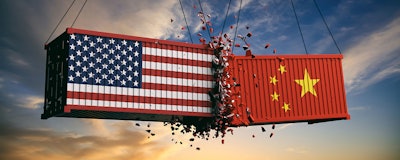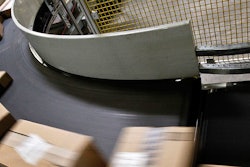
 Suchit Bachalli
Suchit BachalliA large number of working-class U.S. voters still support the tariffs the Trump Administration has imposed on imports from China and other nations. Those voters’ employers, however, are ambivalent at best—and nearly half of America’s wholesalers, distributors and manufacturers actively oppose them.
A quick look at the impact these business owners have: In 2018 American wholesale distributors accounted for nearly $5.7 trillion in revenue, while manufacturers accounted for another $2.33 trillion. We recently surveyed 244 members of this group, and learned that just 14 percent favored an increase in tariffs. More than 45 percent opposed them, and the rest had no opinion. Not exactly a ringing endorsement.
These small-business owners and managers tend to keep their heads down, focusing on their companies and their families. I know many of them personally. They’re not flashy, and they don't have time to glad-hand their representatives in Washington. But they employ millions of Americans, and we should listen to them. While many of them voted for President Trump for other reasons, very few of them share his views on tariffs.
The argument for tariffs tends to begin in a straightforward manner: “China subsidizes its steel industry, artificially lowering the metal’s price and making it unfairly difficult for American steel producers to compete. This and other Chinese trade practices have harmed American workers.” All true, as far as it goes. It’s the President’s response to those inarguable statements about one country—increasing tariffs on nearly all countries—that raised eyebrows, and, in the case of many small-business owners, opposition.
There are a number of things a country can do in response to such subsidization by a competing nation. Most commonly, a country will appeal to the World Trade Organization (WTO). The U.S. has brought a number of complaints against China to the WTO.
But President Trump decided not to wait for the WTO’s decision. Describing himself as a “tariff man,” he began imposing tariffs unilaterally. In March 2018 President Trump imposed an across-the-board 25 percent tariff on steel imports, as well as a 10 percent tariff on imported aluminum. Canada, Mexico, and the EU were exempt initially but joined most of the rest of the world two months later.
Many of his supporters rejoiced. Raising prices on Chinese goods did indeed reduce their appeal. In the short run, tariffs can satisfy.
Small-business owners like the ones we surveyed, though, dislike tariffs for many of the same reasons economists do. They know that raising tariffs discourages some purchases by making them more expensive. As Tripp Davis, owner and president of L.D. Davis Glues and Gelatins told me, “President George W. Bush tried a similar tariff. Steel production hardly rose at all, and 200,000 jobs were lost in American industries that depend on steel.” PTR Baler and Compactor President and CEO Michael Savage echoed Davis, saying, “The tariffs accomplished nothing except driving up costs to manufacturers and ultimately the end user.”
Tariffs invite other countries to retaliate by imposing tariffs of their own, which can ripple through a supply chain, raising domestic costs in often-unexpected places, and harming exports that have nothing whatsoever to do with steel. Indeed, China, Canada, the EU, and Mexico have all either retaliated with tariffs on American goods or have announced plans to do so, which will hurt American exports to each of those countries.
When that retaliation begins to bite—and there are signs that it has already begun to do so—the President’s support among many of my friends may waver.
President Trump often touts his connection to his base—Americans in the heartland who pay little attention to economists. But while many heartland workers continue to support him, the owners of their companies—many of whom considered themselves, too, part of his base—don’t like these tariffs.
If tariffs start to hurt their wallets, and therefore their families, they may leave the President’s base—taking away some of his most intelligent and hardest-working supporters.
Suchit Bachalli is CEO of Unilog.






















